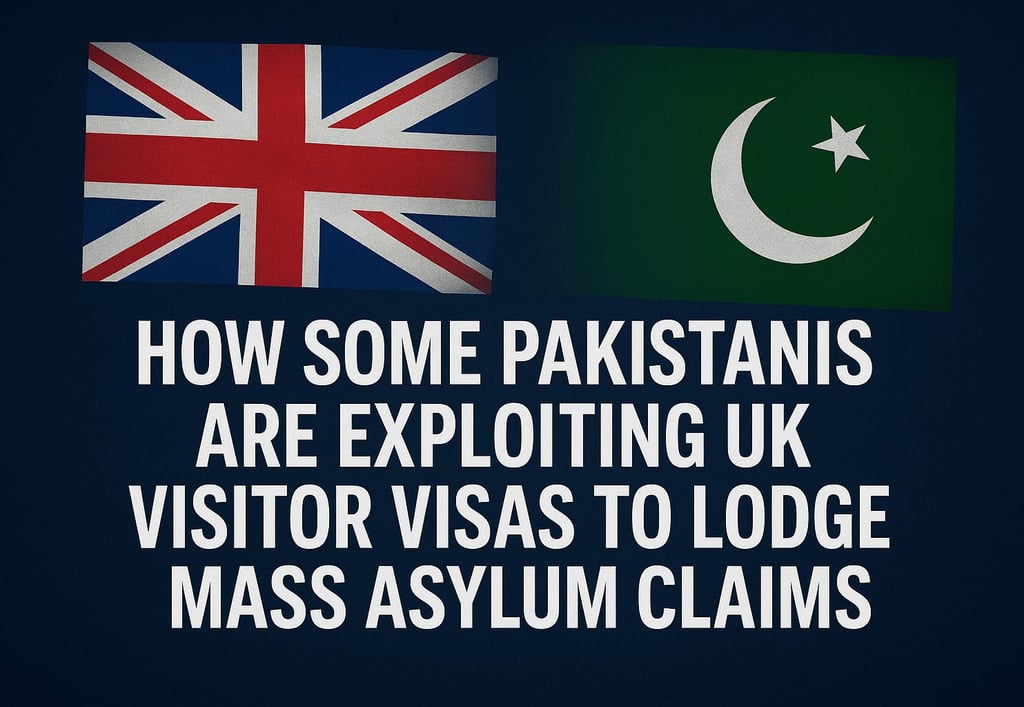UK Visitor Visa Loophole: How Some Pakistanis Are Paying £50,000 to Enter and Claim Asylum
A Telegraph investigation claims that migrants from Pakistan‑administered Kashmir are paying up to £50,000 for fraudulent UK visas, then exploiting a loophole to lodge asylum claims.
Raja Awais Ali
11/22/20251 min read


How Some Pakistanis Are Exploiting UK Visas to Lodge Mass Asylum Claims
A recent undercover investigation has brought to light a worrying trend: migrants from Pakistan, especially from the Pakistan‑administered Kashmir (PoK) region, are allegedly paying as much as £50,000 to visa consultants for forged UK documents. These include fake CVs, bank statements, and invitation or job‑reference letters.
One particularly shocking example involves a job reference letter from a “hospital” in Mirpur, which on investigation turned out not to exist. Applicants use these forged documents to secure entry into the UK — via work, student, or visitor visas — and then submit asylum applications before their visas expire.
Immigration lawyers warn that some are exploiting a loophole: once inside the UK on a valid visa, they submit their asylum claim and often retain the right to work while their case is being processed. A consultant in Kashmir reportedly advertises a “98 % success rate” for such visa-based entry.
According to reports, asylum applications from Pakistani nationals have surged: over 10,500 Pakistanis applied in one year, reflecting an increase of nearly 80%.
In response, the UK Home Office says it is investigating the visa consultants involved, suspending licenses, and strengthening document-verification processes.
Critics argue that more needs to be done — especially stricter oversight of visa agents and fraud-detection mechanisms — to close this loophole. On the other hand, some migrants justify the risk by citing desperate economic conditions in their regions as the reason for taking this “risky legal path.”
This controversy raises difficult questions: How should the UK reform its visa and asylum system to prevent abuse while still protecting genuine applicants?
Stay informed with the latest national and international news.
© 2025. All rights reserved.